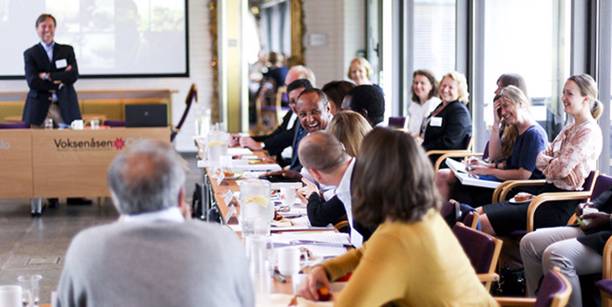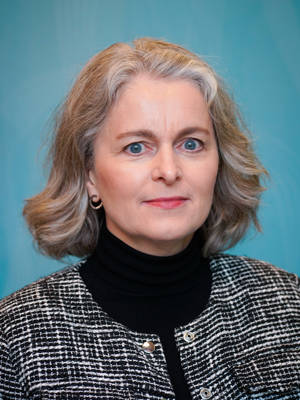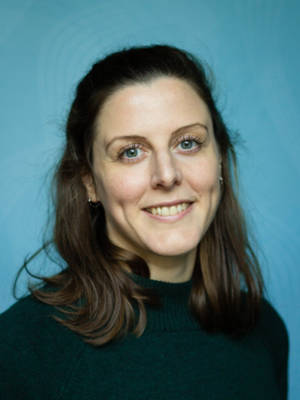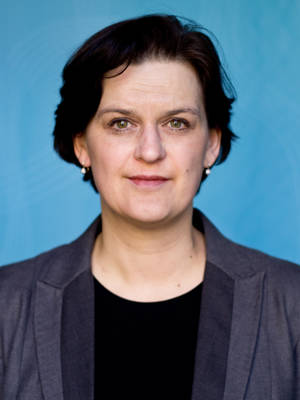Since its start in 2013, PRIO has taken part in the High-Level Seminar on Gender and Inclusive Mediation Processes initiative for envoys, senior mediators and their teams. The Seminar is a cooperative effort of the UN Department of Political and Peacebuilding Affairs (DPPA), PRIO, Crisis Management Initiative (CMI), and the Governments of Norway and Finland. The seminar is one of the main teaching and training activities of the PRIO Gender, Peace and Security Centre.
Participation in the seminar is by invitation only.
The first series of seminars took place between 2013 and 2015:
- First High-Level Seminar, Oslo, 20-21 June 2013
- Second High-Level Seminar, Helsinki, 8-10 October 2013
- Third High-Level Seminar, Helsinki, 13-15 May 2014
- Fourth High-Level Seminar, Oslo, 18-20 November 2014
- Fifth High-Level Seminar , Oslo, 24-26 March 2015
- Sixth High-Level Seminar, Helsinki, 19-21 May 2015
The second series of seminars started in 2016:
- Seventh High-Level Seminar, Oslo, 11–13 October 2016
- Eighth High-Level Seminar, Helsinki, 10–12 October 2017
- Ninth High-Level Seminar, Oslo, 9-11 October 2018
- Tenth High-Level Seminar, Helsinki, 5-7 November 2019
- Eleventh High-Level Seminar, Oslo 30 August - 1 September 2022
Recent Activities
15 October 2020: The UN DPPA, CMI and PRIO publishes three short 2-page practical guidance notes on gender-sensitive mediation. The notes capture key lessons learned on inclusive mediation strategies for the benefit of peacemakers. Read the notes here:
- Practical Guidance for Gender-sensitive Conflict Analysis
- Practical Guidance for Inclusive Mediation Process Design
- Practical Guidance for Inclusive Implementation Arrangements
22 October 2019: The second edition of the Global Women, Peace and Security Index was launched at the UN Headquarters in New York on 22 October, 2019. The WPS Index provides important insights into patterns and progress on women’s well-being and empowerment around the world across three dimensions, inclusivity, justice, and security. The Index has been developed by the Georgetown Institute for Women, Peace and Security (GIWPS) in collaboration with the PRIO Centre on Gender, Peace and Security. The 2019/2020 report can be found here.
27 March 2017: UN DPPA launched a Guidance on Gender and Inclusive Mediation Strategies, which "draws on the seminar materials and guidance notes and feedback provided by seminar participants and senior mediation experts, including UN envoys and members of the UN Standby Team of mediation advisers". The Guidance is available on the UN Peacemaker website here.
Background to the Seminar
Promoting women’s effective participation in conflict mediation and addressing their specific needs in peacemaking efforts is a high priority for the United Nations and Member States since the adoption of Security Council Resolution 1325 (2000) on women, peace and security. However, in spite of many global and regional commitments and initiatives, the number of women and gender experts involved in formal peacemaking processes remains rather low, and few peace agreements include gender-relevant provisions or harness the resources women may contribute to reach more sustainable peace.
The overall objective of the High-level Seminar on Gender and Inclusive Mediation Processes for envoys, mediators and senior mediation experts, is therefore to generate more consultative processes by promoting women’s effective participation and building inclusive, gender-sensitive mediation capacity at international, regional and national levels. The Seminar will introduce practical "how-to" strategies and tools for more inclusive peace process design, as well as options for gender–relevant provisions, including specific language, for the key thematic areas of peace agreements.
Inclusive mediation rests on the assumption that building a sustainable peace would require an integration of societal perspectives – those of conflicting parties and other stakeholders – and its design includes multiple entry points and diverse mechanisms for participation. An inclusive mediation process, however, does not imply that all stakeholders can participate directly in the formal negotiations, but it can facilitate a structured interaction between the conflict parties and other stakeholders to include all perspectives in the process.
The High-level Seminar is rooted in the premise that women living in conflict have strategic knowledge and networks to contribute to its resolution and can be actors in implementing sustainable peace. Gender dynamics thus create unique opportunities and challenges for peacemaking and need to be understood, analyzed, and used for strategic advantage. As inclusivity may increase opportunities for reaching sustainable agreements, more systematic consultation of and outreach towards women across societies would assist mediators in their jobs.
The seminar is designed to:
- Increase participants’ awareness of the roles women may play in resolving and sustaining peace;
- Deal with dilemmas of inclusivity and efficiency in mediation; e.g. how opportunities for women’s participation in mediated processes are affected by culture and local traditions;
- Apply the UN’s normative women, peace and security frameworks as leverage for mediators; High-Level Seminar on Gender and Inclusive Mediation Processes
- Offer practical strategies and tools for conflict assessment and process design to expand participation and opportunities for women and civil society; and for including women more systematically in implementation bodies; and
- Provide specific information, advice, and language on gender-relevant components of substantive issues, including on conflict-related sexual violence, in ceasefire- and peace agreements.
Contact Information
For questions, please contact Stine Aspevik Bosheim at stibos@prio.org









